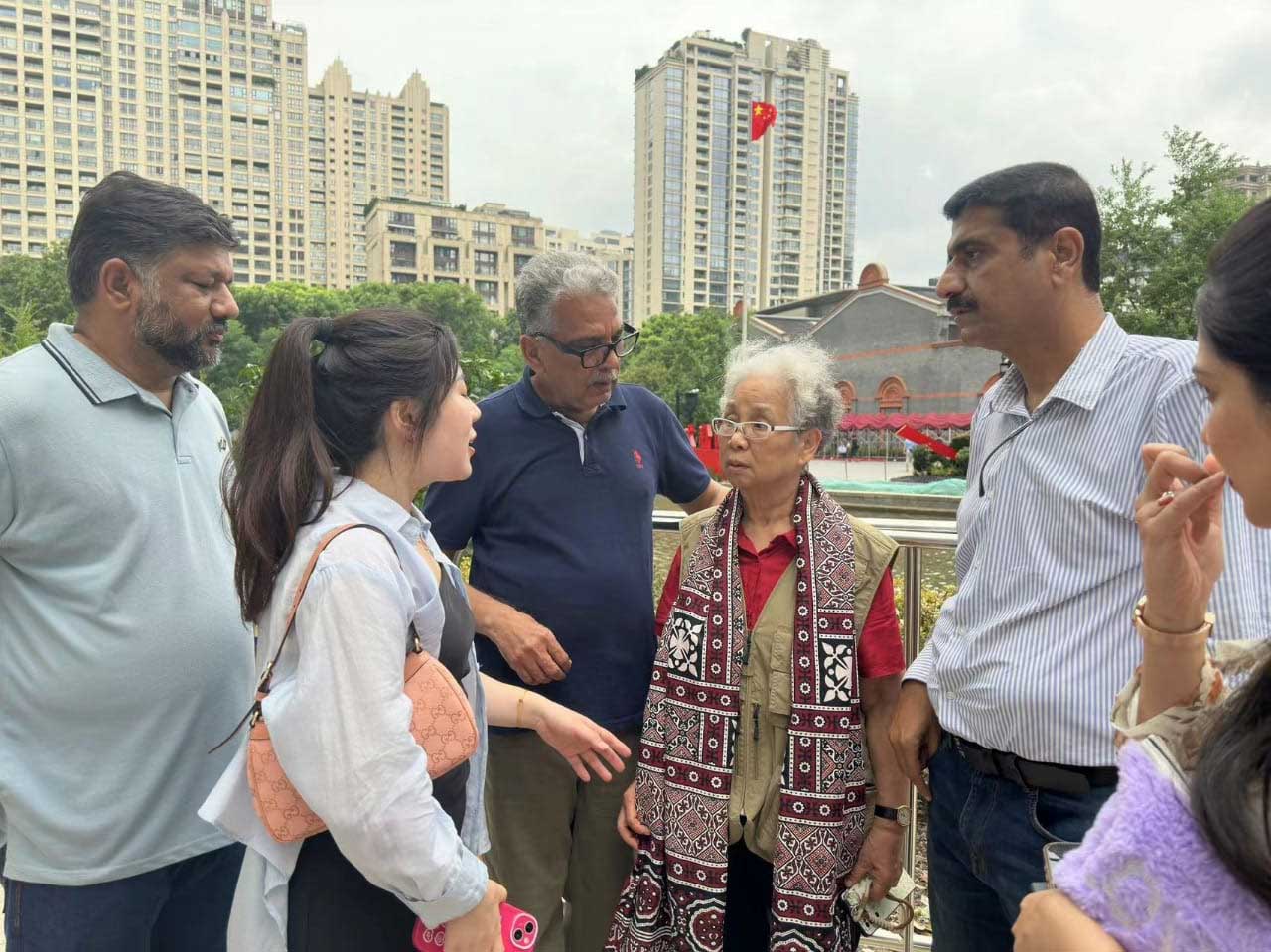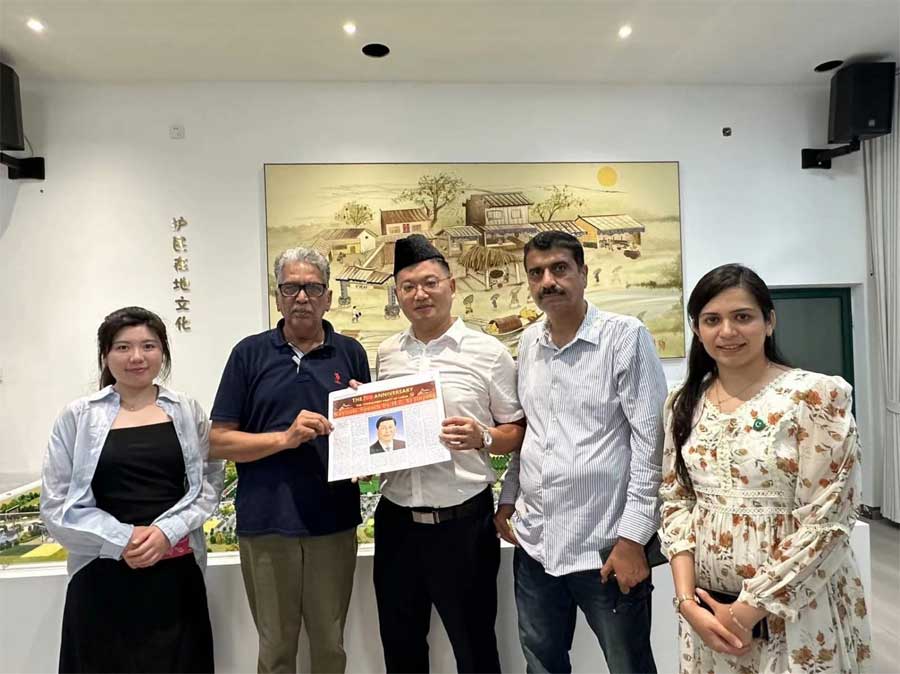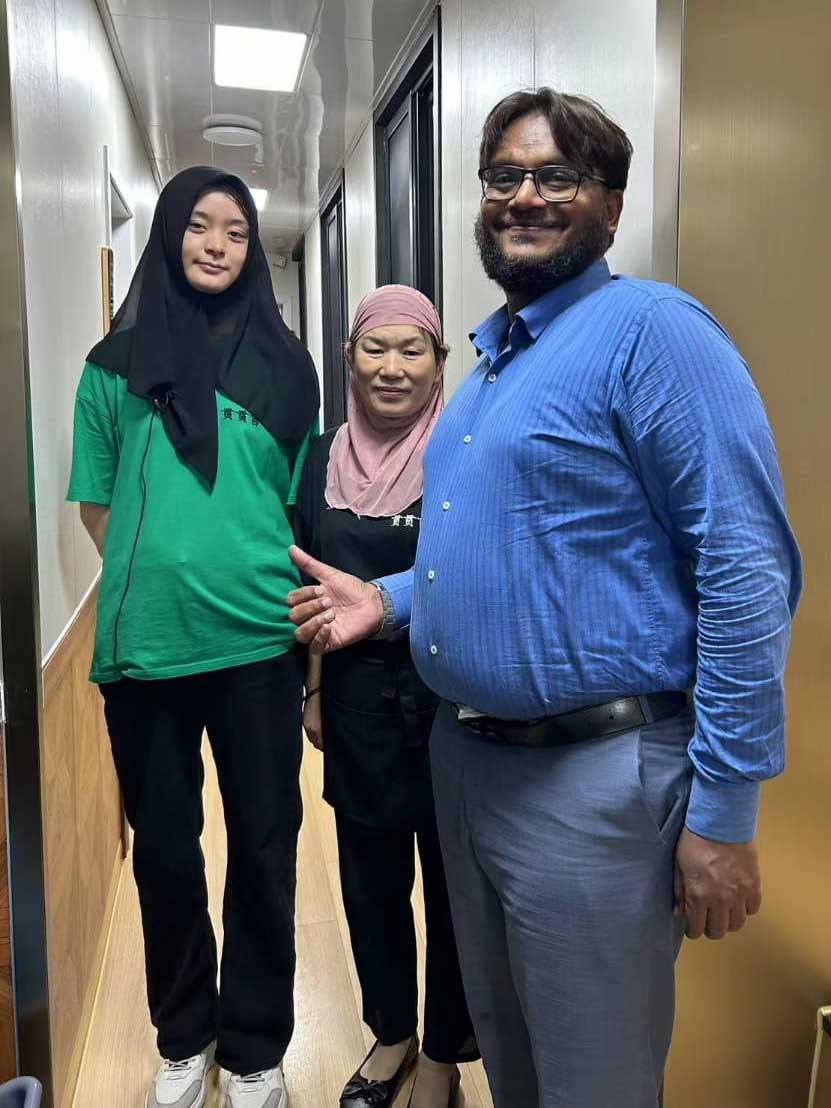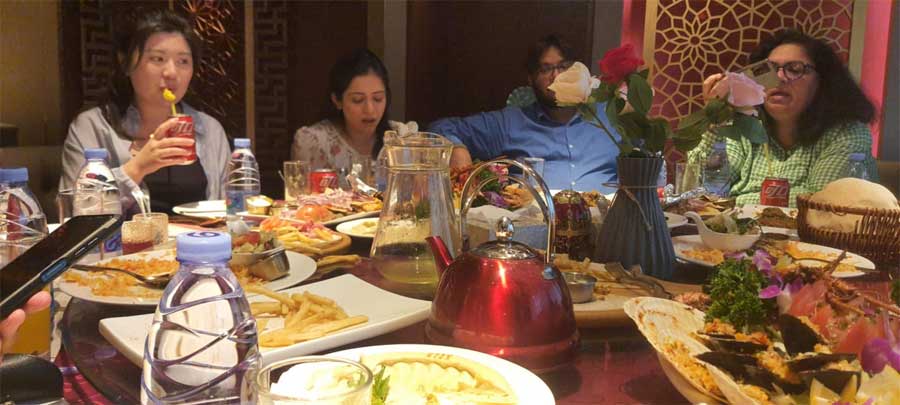Site of the First National Congress of the CPC
On Tuesday, September 10th, after breakfast, we stepped out of the hotel to find out that the weather had become cloudy and pleasant – a stark contrast to the sweltering heat of the previous day. Our host team, along with the delegates, had all been a bit uneasy due to the heat and were curious about the weather back home in Karachi.
Our first visit of the day, led by our Shanghai host Ms. Meng from CEN, was to the place where the historic First National Congress of the CPC was held on July 23, 1921. It had long been my dream to visit this significant site, and today that dream became true as I, along with my colleagues, finally stood at this landmark site.

We had the privilege of being briefed by Ms. Ye Hong, a 75-year-old retired teacher and volunteer at the site. She provided us with a detailed account of the founding site of the CPC, a place deeply embedded in the country’s revolutionary history. The First National Congress of the CPC is housed in a small brick building known as the “CPC Founding Site Memorial Hall.” It was here, in July 1921, that 13 delegates, including a young Mao Zedong, convened to lay the foundations of what would become one of the world’s most influential political parties.
This modest venue holds immense historical significance as it marks the starting point of the CPC’s journey toward leading China into modern socialism. Despite the challenges of the time, including foreign occupation and internal strife, these early leaders united with a vision of a future free from imperialist domination and focused on equality for all Chinese citizens.
Ms. Ye highlighted how, over the decades, the CPC’s core ideologies of Marxism and Leninism were adapted to China’s unique context, shaping the country’s policies and guiding its rapid transformation. From its early struggles to the eventual victory in the Chinese Civil War in 1949, the CPC evolved into a powerful force, leading to the establishment of the People’s Republic of China.

The Memorial Hall has become a revered symbol of national pride, carefully preserved and restored. It features exhibitions of photographs, documents, and personal artifacts of the early founders. Visitors are reminded of the Party’s humble beginnings and its lasting influence on China’s development today. Through the tour and briefing, it became clear that the founding site of the CPC is not just a historic landmark but also a testament to the enduring legacy of the Party’s commitment to the Chinese people’s prosperity and stability.
After the briefing, our group honored Ms. Ye with a traditional Sindhi Ajrak. She graciously bid us farewell as we continued to our next destination.
Makan Restaurant
After our visit to the CPC site, our hosts took us to lunch at the beautiful Makan Restaurant, owned by a UAE group, where the entire staff members were Chinese. Makan offers a vibrant dining experience, celebrating the rich flavors of Southeast Asia, especially Arabic cuisine. Located in the heart of Shanghai, the restaurant stands out with its inviting atmosphere and eclectic menu, drawing high dignitaries and visitors alike for its delicious food.
Humin Village: A Hidden Gem in Shanghai’s Fengxian District

After lunch, we left the Makan Restaurant just as heavy rains began in Shanghai, which continued as we made our way to our second destination, Humin Village, located in Shanghai’s Fengxian District – a 90-minute drive away. Despite the downpour, the visit turned out to be an enriching experience, showcasing the village’s unique charm and the dedication of its local leaders.
At Humin Village, we were received by Mr. Gong Lianghua, the first secretary stationed in the village by the Shanghai Municipal Government. He briefed us about the village, which has a population of 2500 and also features an industrial area alongside various other amenities.
After the briefing, we boarded a shuttle bus for a tour of the village, despite the windows being fogged up due to the heavy rain. The relentless downpour added a dramatic atmosphere to our visit, transforming the road to Humin Village into a misty, almost ethereal route. The traditional houses, with their gray-tiled roofs glistening under the rain, seemed to shimmer, and the usually bustling streets were quieter, giving the village a serene and almost magical quality.
We visited a nursery that sold thousands of different plants and later toured the village’s display hall, which featured a variety of relics, gift items, customized giveaways, and crockery, all of which were available for purchase.
After our tour of the village in the heavy rain, we returned to the briefing hall from where we had started. Here, we presented a Jinnah Cap and a special edition of ‘The Financial Daily’ to our hosts. This edition was published on the 100th anniversary of the CPC and featured 100 quotes from President Xi Jinping.
Guan Guan Ji Muslim Restaurant, Shanghai

In the evening, we left Humin Village in the continued heavy rain and headed back to Shanghai, where we dined at the renowned Guan Guan Ji Muslim Restaurant. Known for its authentic halal cuisine and unique atmosphere, what makes this restaurant particularly special is its all-female team of Muslim servers, who bring a warm, respectful touch to the dining experience.
The restaurant is a favorite among locals and visitors alike, particularly for its focus on traditional Chinese Muslim dishes from the Xinjiang region. The wait-staff, dressed in proper hijabs, follow Muslim customs, and I had the opportunity to speak with some of the male and female staff. They expressed their happiness with life in China, rejecting the notion of any discrimination against Chinese Muslims – a narrative they said was merely Western propaganda.




